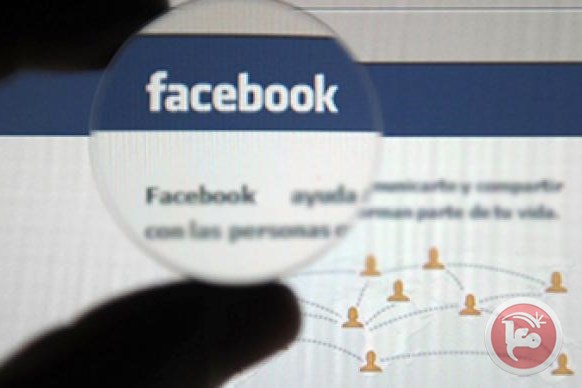Knesset passes first reading of controversial ‘Facebook bill’
January 3, 2016

BETHLEHEM (Ma’an) — Israel’s parliament, the Knesset, passed the controversial “Facebook bill” — which would allow Israeli officials to force the social media giant to remove certain content through a court order if there are suspicions of “incitement” — through its first reading on Tuesday.
According to Ynet, the bill passed its first reading, and will be followed by a second and third reading to determine if the bill is to become official Israeli legislation.
According to Israeli media outlet the Times of Israel, the bill, proposed by Public Security Minister Gilad Erdan and Justice Minister Ayelet Shaked — members of right-wing Israeli parties Jewish Home and Likud respectively — would “only be invoked in cases of suspected incitement, where there is a real possibility that the material in question endangers the public or national security.”
Despite Facebook complying with 95 percent of the Israeli government’s removal requests in recent months, some members of the Knesset have expressed indignation that Facebook has not taken enough action to remove content inciting “acts of terror against Jews.”
The Times of Israel reported that Erdan said last week that France, Germany, and other European countries already have adopted similar legislation.
Erdan also defended the bill’s application to Palestinians living in the occupied West Bank, using the Israeli term “Judea and Samaria,” and underscored his concerns that Facebook did not recognize Israeli military control over the Palestinian territory.
“If someone writes something problematic and they live in Judea and Samaria, [Facebook] won’t cooperate with us and they say it’s outside of Israel and therefore they can’t cooperate,” the Times of Israel reported Erdan as saying.
In recent months, Israel has detained scores of Palestinians for social media activity, alleging that a wave of unrest that first swept the occupied Palestinian territory in October 2015 was encouraged largely by “incitement.” The violence has left 246 Palestinians killed by Israelis, as well as some 34 Israelis killed by Palestinians.
Israel has responded to the perceived threat of social media incitement by blaming Facebook for not doing more to censor posts promoting “terrorism” against Israelis.
Following a series of deadly incidents, Erdan reportedly said that Facebook chairman and co-founder Mark Zuckerberg had “blood on his hands” for not adequately cooperating with Israel to remove content.
In July, an Israeli lawyer filed a $1 billion lawsuit against Facebook Inc., claiming that the social media platform allowed members of the Palestinian resistance movement Hamas to plan and carry out attacks against Americans and Israelis.
Commenting on the suit against them, Facebook referenced its community standards, and highlighted its ‘report’ tool, which allows and encourages Facebook users to flag content that they deem as encouraging violence, direct threats, terrorism or hate speech.
Facebook also cited its track record regarding incitement, referencing a case in March when the company took down a page promoting a Palestinian uprising against Israel because it made “direct calls for violence,” in violation of company policies.
In September, Erdan and Shaked met with Facebook executives to discuss the matter, reportedly looking to having the terms “intifada,” “Nazis,” “stabbings,” “shahid” (martyr), and “death to Jews,” censored as incitement against the state of Israel.
Shaked and Erdan also allegedly included the phrase “death to Arabs” — a slogan often heard in protests and mobs of extremist Israelis — saying that it too, led to incitement in general.
Shaked herself has used Facebook in the past to advocate for the killing of the mothers of slain Palestinians, referring to them as ‘snakes.’
Critics have instead pointed chiefly to the frustration and despair brought on by Israel’s decades-long military occupation of the Palestinian territory and the absence of a political horizon as reasons for the rise of unrest, and have accused the Israeli government of utilizing “anti-terrorism” discourse in order to justify and further entrench the Israeli military’s half-century occupation of the West Bank and near decade-long siege of the Gaza Strip.
In response to incitement claims against Palestinians, Palestine Liberation Organization (PLO) Secretary-General Saeb Erekat condemned the current Israeli government for its failure to “entrench a culture of peace and coexistence within Israeli society” in July, holding Israel responsible for incitement, saying “official Israeli discourse entrenches hatred, racism, and discriminatory attitudes against Palestinians. The discourse is only further entrenched by the institutional protection that is given to those who commit or incite violence against Palestinians.”


